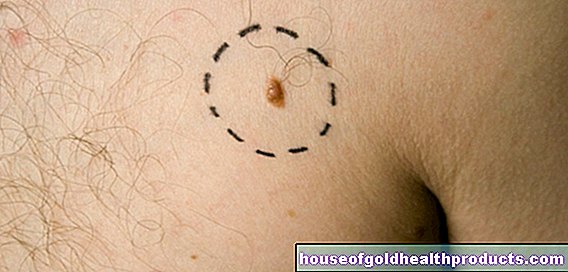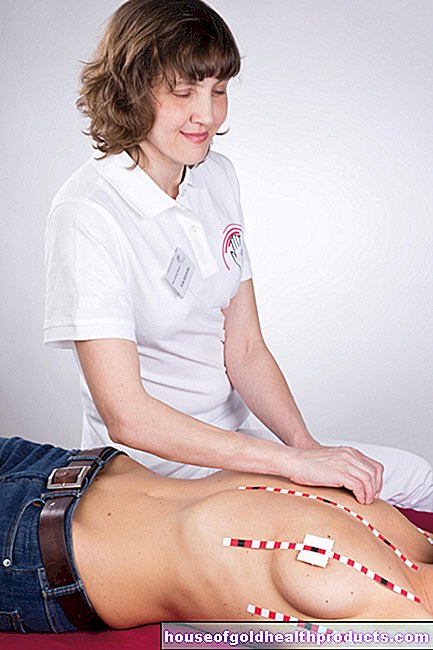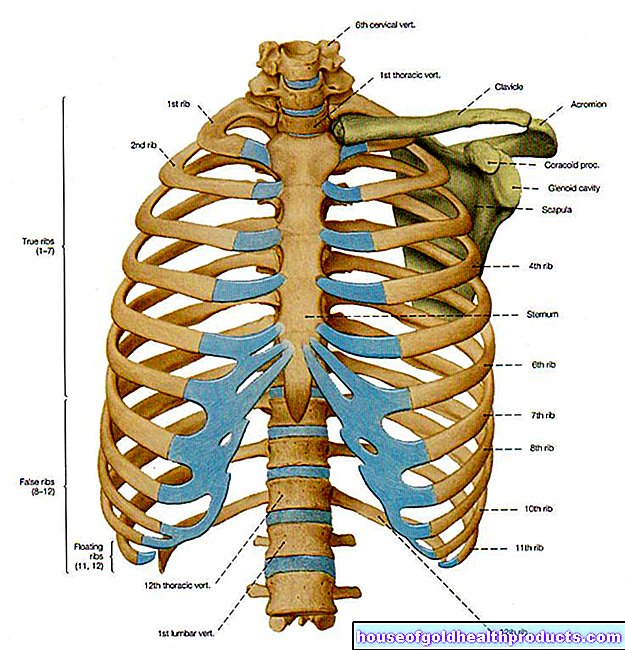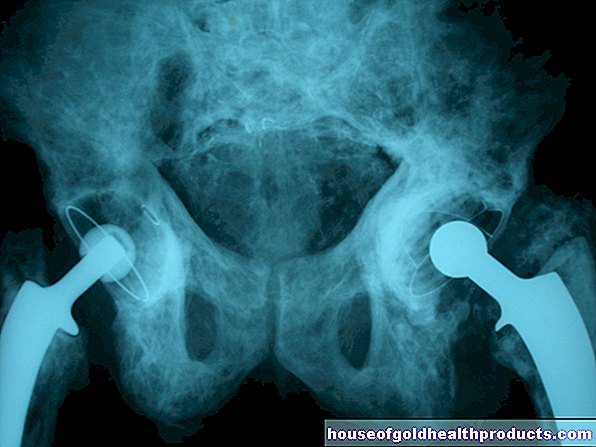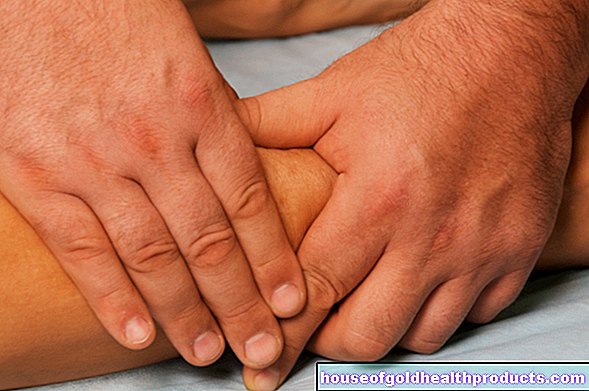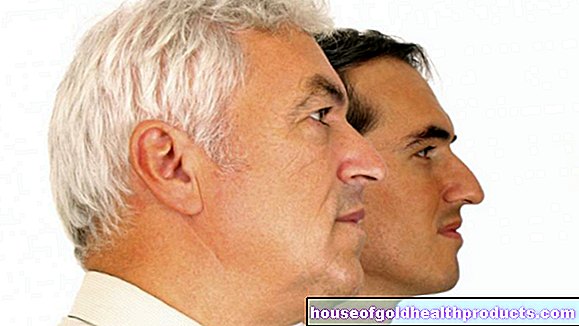Always take vertigo attacks seriously
All content is checked by medical journalists.MunichSome people get dizzy if they sit up or get up too quickly from a lying position - their blood pressure then plummets. What sounds harmless at first, could have serious consequences: Because those affected carry a significantly higher risk of premature death.
This is the conclusion reached by Italian researchers when they evaluated the data of more than 120,000 participants as part of a meta study. The team led by Fabrizio Ricci from the G. D "Annunzio University in Chieti found that people suffering from so-called orthostatic hypotension - the medical name of the blood pressure phenomenon - were 50 percent more likely to die within the respective observation period. They were 64 percent more likely to have a stroke and 40 percent more likely to develop coronary artery disease, in which the coronary arteries become calcified.
Calcifying vessels
That seems confusing at first - because blood pressure that is too high is actually considered a risk factor for cardiovascular disease - and not a low one.
The researchers suspect, however, that orthostatic hypotension is associated with an altered release of certain hormones. These are formed in the walls of the blood vessels and play a key role in regulating blood pressure. This could promote the tendency for blood to clot and the formation of deposits in the vessels.
Whether orthostatic hypotension actually represents an independent risk factor for cardiovascular diseases is still controversial. Peter Brady of the Mayo Clinic in Rochester writes in an editorial about the published study that he thinks it is more plausible that the drop in blood pressure is merely a symptom of another underlying disease - for example a neurological, a metabolic or a cardiovascular disease.
In any case, however, it is important to monitor people suffering from orthostatic hypotension particularly well and to minimize risk factors for the heart and circulatory system such as obesity and high blood pressure as far as possible.
Common phenomenon
Orthostatic hypotension is not uncommon. Studies show that in around seven percent of adults between the ages of 25 and 74, the blood pressure drops by 20 mm Hg after switching from lying down to sitting upright. The vertigo attacks caused by the change of position occur more frequently in older people.
When a person rises quickly from lying down (orthostasis), part of their blood sinks into their legs and abdomen. In order to counteract this and to keep the blood pressure stable, the heart rate normally increases slightly and the blood vessels contract.
If this automatic protection system fails, the blood pressure drops suddenly. People feel dizzy, black, light-headed, or even faint.
Sources:
Fabrizio Ricci et al .: Cardiovascular morbidity and mortality related to orthostatic hypotension: a meta-analysis of prospective observational studies, European Heart Journal, first published online: 7 April; 2015DOI: http://dx.doi.org/10.1093/eurheartj/ehv093 1609-1617
Peter A. Brady: Orthostatic hypotension: a new cardiac risk factor ?, European Heart Journal, first published online 5 May 2015DOI: http://dx.doi.org/10.1093/eurheartj/ehv152 1569-1570
Harris, T., et al., Postural change in blood pressure associated with age and systolic blood pressure: The National Health and Nutrition Examination Survey II. J. Gerontol. 46 M 159.



